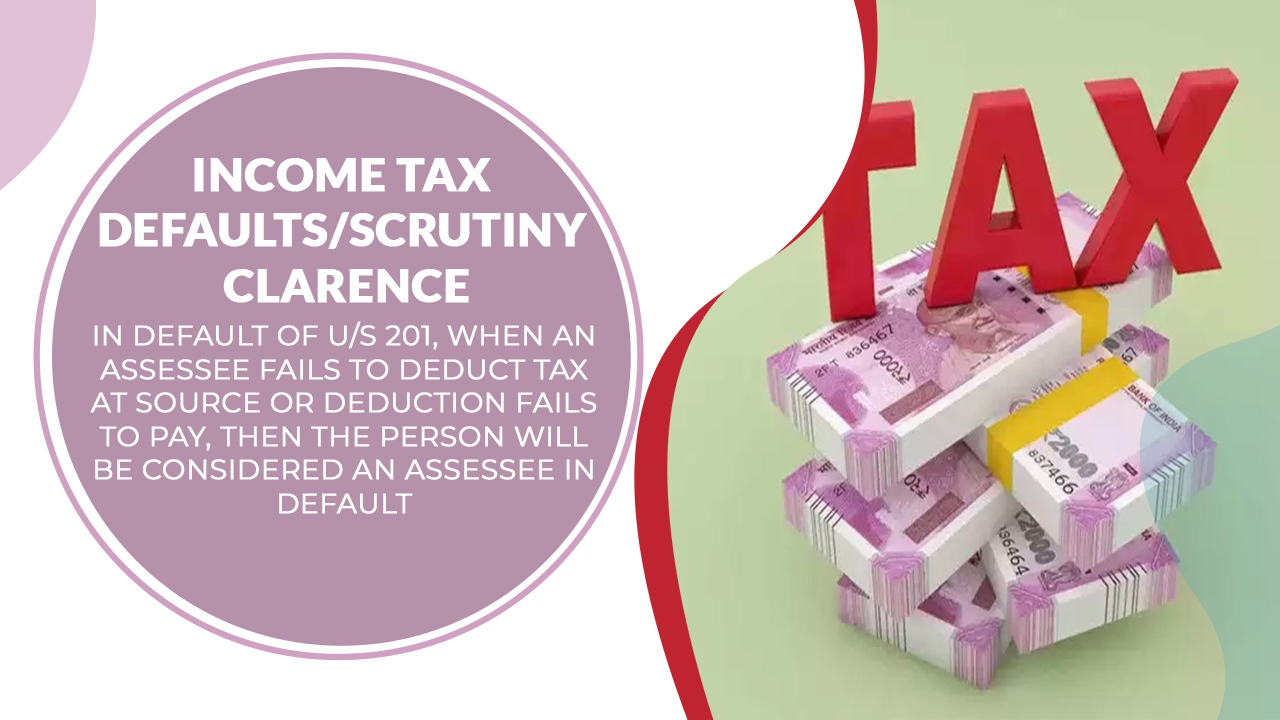Online Income Tax Defaults/Scrutiny Clearance
In default of u/s 201, when an assessee fails to deduct tax at source or deduction fails to pay, then the person will be considered an assessee in default. Assessee who does not deduct or after deducting fails to pay the tax, A simple interest [under section 201(1A)] at the rate of 1% or 1.5% shall be payable.
Track Your Status
Income Tax Defaults/Scrutiny Clearance Registration Package
Get Quote
- What we provide
- Documents required
- Free Consultancy
- Case handled by Professional Tax Consultant
- BASED ON DEFAULTS NOTICE
Types of Income Tax Defaults
Here are some familiar defaults that can lead a person to Tax penalties.
- Unsuccessfully maintained books of accounts.
- Failing to Audit the Book of accounts.
- Making suspicious entries in books of accounts.
- Unsuccessful deduction of TDS.
- Deceptive or inaccurate Income reports.
- Failing to comply with the directions issued by the income tax officer
- Rejected loans or advances as per the rules mentioned
- Insufficient disclosure details of international transactions
FAQ on Income Tax Default
How do I know if my tax return is default?
Status of TDS / TCS statements filed by a deductor can be viewed by the log in Traces. This facility is available only to the registered users.
What is meant by TDS defaults?
If an assessee fails to deduct tax at source or having deducted fails to pay, then such person shall be considered an assessee in default. Simple interest u/s 201(1A) at the rate of 1% or 1.5% shall be payable who does not deduct or after deducting fails to pay the tax.
What if there is late payment of TDS?
Under Section 201(1A), in case of late deposit of TDS after deduction, additional interest is applied. Interest is calculated at the rate of 1.5% per month from the date on which TDS was deducted till the actual date of deposit.
Need Consultancy? Ask Tax Seva Kendra Expert@ Rs. FREE
- Free Consultancy
- Online Documentation
- Anywhere In India





